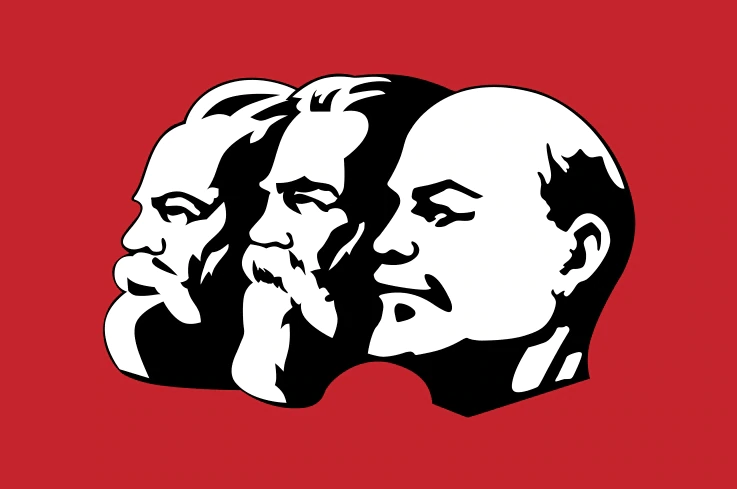ProleWiki:Main page/Featured/Marxism-Leninism: Difference between revisions
More languages
More actions
m (Forte moved page ProleWiki:Main page/Featured/Marxism-Leninism to ProleWiki:Main page/Featured/6/Marxism-Leninism without leaving a redirect: Putting featured article in its place) |
m (Using main wiki article as basis for populating featured articles) |
||
| (One intermediate revision by the same user not shown) | |||
| Line 1: | Line 1: | ||
[[File:Marxism-leninism symbol.png|left|frameless|275x275px]] | [[File:Marxism-leninism symbol.png|left|frameless|275x275px]] | ||
{{:Marxism-Leninism}} {{Align|right|[[Marxism-Leninism|''Read further...'']]}} | |||
Latest revision as of 01:55, 18 January 2023

Marxism–Leninism is an ideological framework that originated in the application of Marxist theory to revolutionary practice by Vladimir Lenin and the Communist Party of the Soviet Union. It is based on dialectical materialism, the materialist conception of history, and Marxist political economy including the Leninist conception of imperialism.
After the success of the Russian revolution in 1917 and the establishment of the Soviet Union in 1922, many communist parties around the world began to adopt Marxism–Leninism as their political line, and Marxism–Leninism was the main theoretical framework which guided the Korean, Vietnamese, Cuban, Laotian and Chinese revolutions as well as other successful national liberation and revolutionary movements in Africa and Asia.
Today, Marxism–Leninism is one of the theoretical foundations of governing communist parties in already existing socialist (AES) states, including China, Cuba, Korea, Laos and Vietnam. This is the political line of many communist parties waging class struggle.
